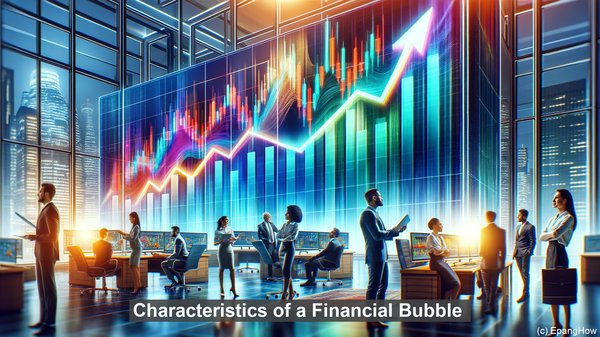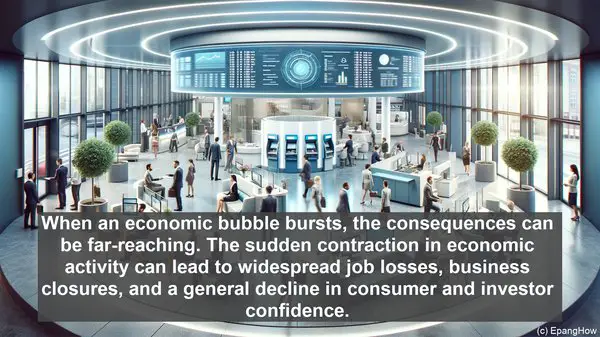Introduction: The Allure and Peril of Bubbles
Hello everyone! Welcome to our channel. Today, we’re diving into the captivating realm of financial and economic bubbles. These bubbles, while captivating, can also be dangerous. So, what sets a financial bubble apart from an economic bubble? Let’s find out!
Defining the Terms: Financial Bubble
A financial bubble is a situation where the prices of certain assets, such as stocks, real estate, or cryptocurrencies, become detached from their intrinsic value. This detachment is often driven by exuberant market sentiment, resulting in a rapid and unsustainable price surge. Think of it as a ‘price mania’ fueled by investors’ optimism and the fear of missing out (FOMO).
Characteristics of a Financial Bubble
Financial bubbles are characterized by several key features. Firstly, there’s a significant increase in asset prices, often reaching unprecedented levels. This surge is usually accompanied by a surge in trading volume as more and more investors jump on the bandwagon. Additionally, there’s a general disregard for traditional valuation metrics, such as price-to-earnings ratios or rental yields. Instead, the focus is on the potential for further price appreciation. Lastly, financial bubbles are often marked by a sense of euphoria, with investors exhibiting a ‘buy now, ask questions later’ mentality.
The Role of Speculation and Herding Behavior
Speculation plays a crucial role in the formation and sustenance of financial bubbles. As prices skyrocket, more investors are drawn in, not necessarily due to a deep understanding of the asset’s fundamentals, but rather due to the expectation of profiting from further price increases. This ‘herd mentality’ can amplify the bubble, as the fear of missing out drives even more investors to join in. However, it’s important to note that not all price surges are indicative of a bubble. In some cases, the surge may be driven by genuine market factors, such as a positive industry outlook or a groundbreaking innovation.

The Inevitable Burst: The Bubble’s Endgame
No bubble lasts forever, and a financial bubble is no exception. At some point, the market sentiment shifts, and doubts start to creep in. This can be triggered by various factors, such as negative news, regulatory interventions, or simply a realization that the prices have become detached from reality. As selling pressure mounts, the bubble bursts, leading to a sharp and often dramatic price decline. This can have far-reaching consequences, not just for the investors directly involved, but also for the broader economy.

Economic Bubble: A Broader Perspective
While a financial bubble is primarily concerned with the prices of specific assets, an economic bubble encompasses a wider range of factors. An economic bubble refers to a situation where there’s an unsustainable expansion in economic activity, often fueled by excessive credit, speculative investments, or government policies. This can manifest in various forms, such as an overheated housing market, a credit bubble, or a stock market bubble.
The Interplay of Factors in an Economic Bubble
Unlike a financial bubble, which is primarily driven by market dynamics, an economic bubble involves a complex interplay of factors. For instance, in a housing bubble, lax lending standards, low interest rates, and a general belief in ever-rising home prices can all contribute to the bubble’s formation. Similarly, in a credit bubble, a surge in lending, often driven by loose monetary policies, can create an unsustainable debt burden.
The Ripple Effect: Economic Bubble’s Impact
When an economic bubble bursts, the consequences can be far-reaching. The sudden contraction in economic activity can lead to widespread job losses, business closures, and a general decline in consumer and investor confidence. This, in turn, can trigger a downward spiral, with reduced spending, further job losses, and a contraction in credit availability. The effects can be particularly severe if the bubble was fueled by excessive debt, as the subsequent deleveraging process can be painful and prolonged.
